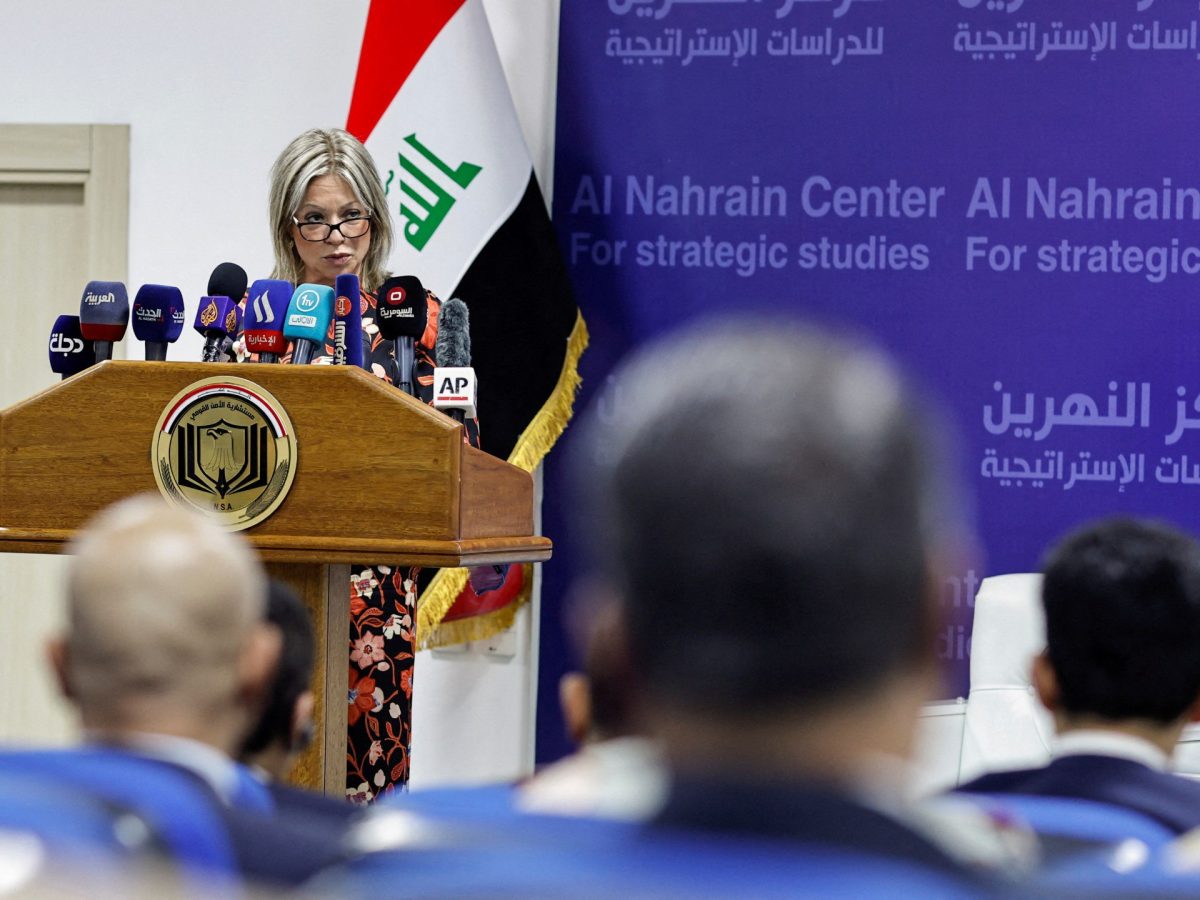The former Dutch defence minister was appointed by UN Secretary-General Antonio Guterres in late 2018. The UN Assistance Mission for Iraq aims to advance inclusive political dialogue and helps coordinate humanitarian and development aid.
“For Iraq to further continue on its path of stability and progress, an enabling environment will prove essential. And, such an environment requires restraint from all sides,” Hennis-Plasschaert told the 15-member Security Council on Tuesday.
Iran-aligned groups, known collectively as the “Axis of Resistance”, have been waging attacks against Israeli and US targets from Lebanon, Yemen, Iraq and Syria, since Israel began its war in Gaza following the Hamas attack on October 7.
Washington responded with attacks in a cycle of escalating violence that Iraqi officials said threatened to undo progress towards stabilising the country after decades of conflict.
“While we are, of course, aware that many authorities and actors seek to limit further escalation, it is clear that the situation remains volatile. Iraq – indeed, the wider region – remain on a knife-edge, with the tiniest miscalculation threatening a major conflagration,” Hennis-Plasschaert stated.
There was an “urgent need to cease attacks, be they originating from within or outside” of Iraq, she continued, adding, “And, as stated many times in past years, this must include reining in armed actors operating outside state control.”
Security Council permanent members Russia and China have criticsed the US for its recent air raids on targets in Iraq and Syria. The two countries accused Washington of raising the risk of regional escalation at a meeting of the Security Council late on Monday.
The United States invaded Iraq and toppled leader Saddam Hussein in 2003, precipitating years of rebellion and fighting among Iraq’s ethnic and religious groups.
It withdrew its troops in 2011, but sent thousands back after Daesh’s surge into the country three years later.
